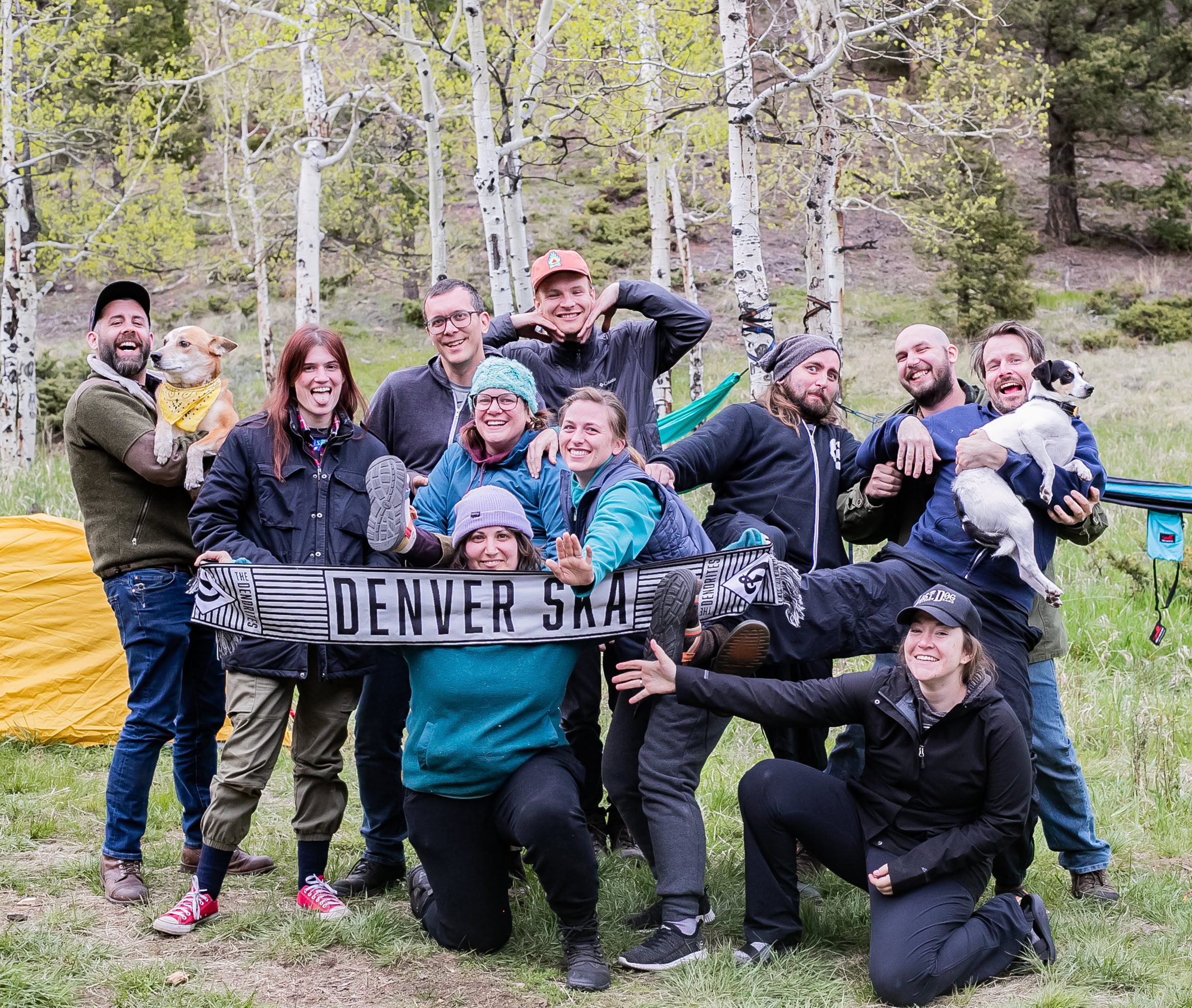
Picture in your mind’s eye the average ska enjoyer and you might see a neck-bearded white guy in checkerboard Vans and a goofy little hat. Maybe he’s doing a running-man style mosh dance (known regrettably as “skanking”) to the bounce of a brass section in a comically large pop-punk band. Fronting the ensemble is another dude with a soul patch and slicked-back hair, sputtering on his vintage mic in a faux patois: Pick it up, pick it up, pick it up!
“For a lot of people who aren’t enmeshed in this music, that’s the entirety of ska,” says veteran music journalist Aaron Carnes. “It’s a bunch of Orange County kids who are very white and don’t know how to dance, don’t know how to dress, and they brought in the horn section from their high school marching band. This is what people think of ska.”
Carnes wants to broaden our view on what he sees as a half-baked stereotype. The 48-year-old author and enthusiast of the Jamaican-born subgenre set out to do just that with his 2021 book, In Defense of Ska, which takes a critical look at the maligned and misunderstood music style whose “cringe” reputation is wedded (fairly or not) to the mid-90s radio punk that gave rise to the cheerful dorkiness of SoCal bands like Reel Big Fish and the matching suits of New England’s Mighty Mighty Bosstones.
“Part of what my work has revolved around is broadening our perspective on this genre. Let’s look past what was popular in 1997 — let’s get a wider picture of it,” Carnes told Boulder Weekly during a recent Zoom call from his home in Sacramento, California, ahead of the inaugural Denver Ska Fest on June 15. “Because what’s happening now, and where the music comes from, is so much bigger than that.”
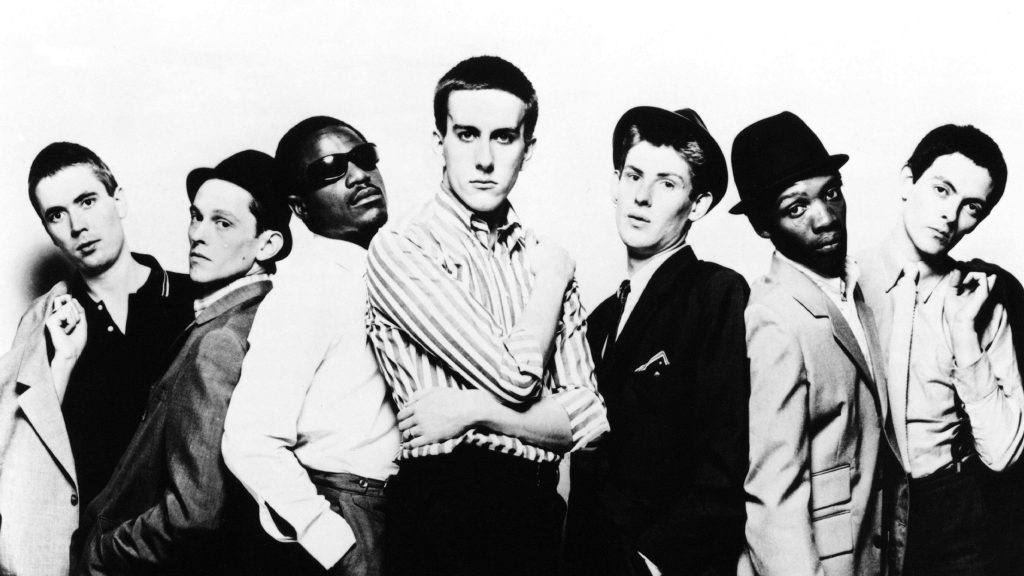
Skanking in the wilderness of the uncool
To tell that story, Carnes takes ska-curious readers to the midcentury ghettos of West Kingston, Jamaica. That’s where a heady mix of jazz, R&B and traditional folk music known as mento was beginning to take root in the 1950s: “lo-fi, wonky and performed on often out-of-tune instruments.”
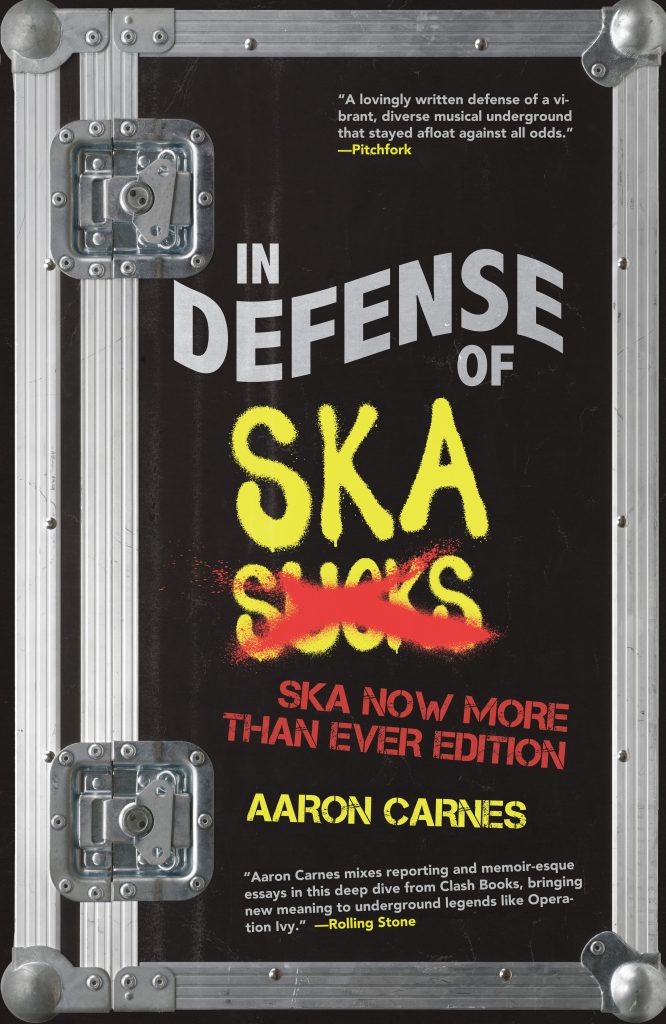
Locals would soon move past the genre as it evolved into the roots reggae most commonly associated with the island nation today, but not before unleashing a musical pathogen that would mutate and make its way decades later to the bedrooms of suburban white kids across the U.S. and U.K.
What we now recognize as ska is most cleanly traced to an offshoot known as 2 Tone that sprung up in late-70s England. Racially diverse and sharply dressed bands like The Specials, English Beat and Madness began to climb the charts, marrying punk and new wave signatures with spiky upstroked guitars, buzzing organ stabs and overtly political lyrics aimed at the austerity regime of British Prime Minister Margaret Thatcher.
It was, in short, a far cry from the whitewashed, mallrat frivolity the genre would come to be associated with during the American “third wave” of the 1990s. So what happened?
“A whole bunch of stuff happened between 2 Tone and ’90s ska — it wasn’t just this thing that popped up out of nowhere. It was built off of 15 years of an underground subculture happening in the U.S. and spreading all over the world,” Carnes says of the genre’s stateside evolution after the ’70s British revival. “There were the goofballs, and there were bands doing traditional ska soul and super political punk-rock ska. It’s a complex subculture, but it’s hard to retell a story once it’s been told.”
This flattening of a rich musical lineage has indeed been a tough knot to untangle. The fallout from the pre-Y2K explosion cemented ska as shorthand for silly pop-punk bands with horns, its fans jumping ship for the more fashionable emo and post-hardcore that would come to dominate local Hot Topic window displays. As a result, the onetime genre of the moment spent the following decades in the wilderness of critical consensus: unserious, undignified and — perhaps worst of all — uncool.
“A lot of people who got into the music when it launched into the mainstream started to view their ska phase negatively. Like, ‘Oh man, that was so embarrassing when I was part of the band-geek crowd and wore fedora hats and danced around in circles,’” he says. “Now I think a lot of the key audience for that time is hitting a certain age where they’re ready to admit that maybe ska wasn’t that bad.”
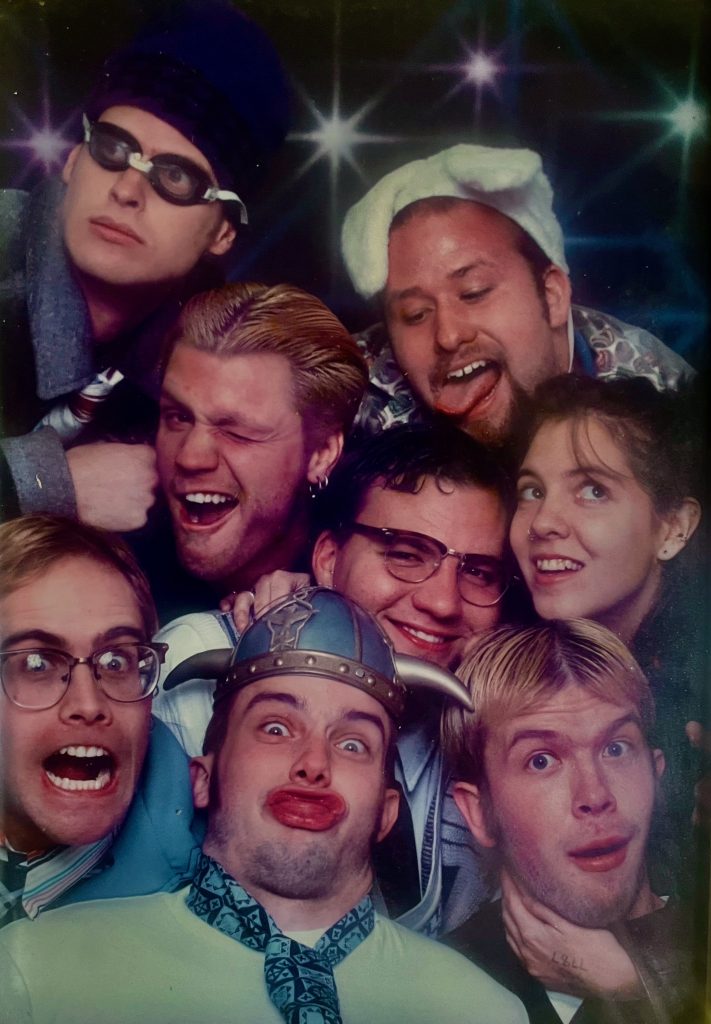
Horned up on Cap Hill
Leanor Ortega Till’s ska journey began far from the sunny beaches of Jamaica or the overcast West Midlands of Great Britain — at the former state armory in Greeley, Colorado. The converted venue was hosting a big-time West Coast band called Skankin’ Pickle around the time of the genre’s third-wave resurgence in the mid-90s, and the Front Range 15-year-old was ready to receive a message of radical sincerity.
“I had never seen ska before. My little teenage brain was watching them laughing and dancing and going into the crowd,” Ortega Till, now 47, recalls. “I was a hyper ADD kid who played saxophone and I thought, ‘Whoa, these aren’t just the cool kids with guitars. They’re horn players, too.’”
Growing up 30 minutes north in the tiny town of Pierce (pop. 1,095) didn’t offer much in the way of musical opportunities for kids like Ortega Till. But her cousin Micah Ortega played in a Denver thrash metal band called Exhumator, and he soon tapped his younger sax-playing family member to join a new side project in the big city called Five Iron Frenzy.
He and fellow bandmates Reese Roper and Scott Kerr found themselves growing tired of the dour schtick that came with the territory of heavy music. They were looking for something more approachable, more authentic to themselves — and more, well, fun.
“They realized they were not angry people, and they saw that ska was fun. They could have a good time on stage and be dorks who like music,” she says. “I found myself in the basement of a punk house on Pennsylvania and 6th in Capitol Hill for the first band practice, and they realized I sucked. We all sucked, but I sucked more than them. So they paid for my lessons, and that’s how we started.”
God’s trombone
From those scrappy beginnings, Five Iron Frenzy would go on to amass a devoted following as one of the most successful DIY bands of ska’s vilified third wave. While the outfit shared many chromosomes with their frivolous and fun-loving peers, they set themselves apart with political lyrics and a social justice bent not unlike their 2 Tone predecessors across the pond. Often turning their gigs into benefits for people experiencing homelessness and hunger, the eight-piece ensemble could be accused of many of ska’s alleged crimes — but the sin of unseriousness was not among them.
Ironically, what drove Five Iron Frenzy to a more substantial place than their ’90s ska-punk siblings grew from an influence that would never fly with the gatekeepers of cool: the band’s overt Christian faith. Woven into the music from that first practice session in a dank Denver basement, it has since guided the band’s professed regimen of care for the least among us. Vocalist Roper would go on to co-found a non-denominational punk church in Denver called Scum of the Earth in 2000, where Ortega Till was a women’s pastor for 16 years before becoming an interfaith chaplain at the Denver Women’s Correctional Facility.
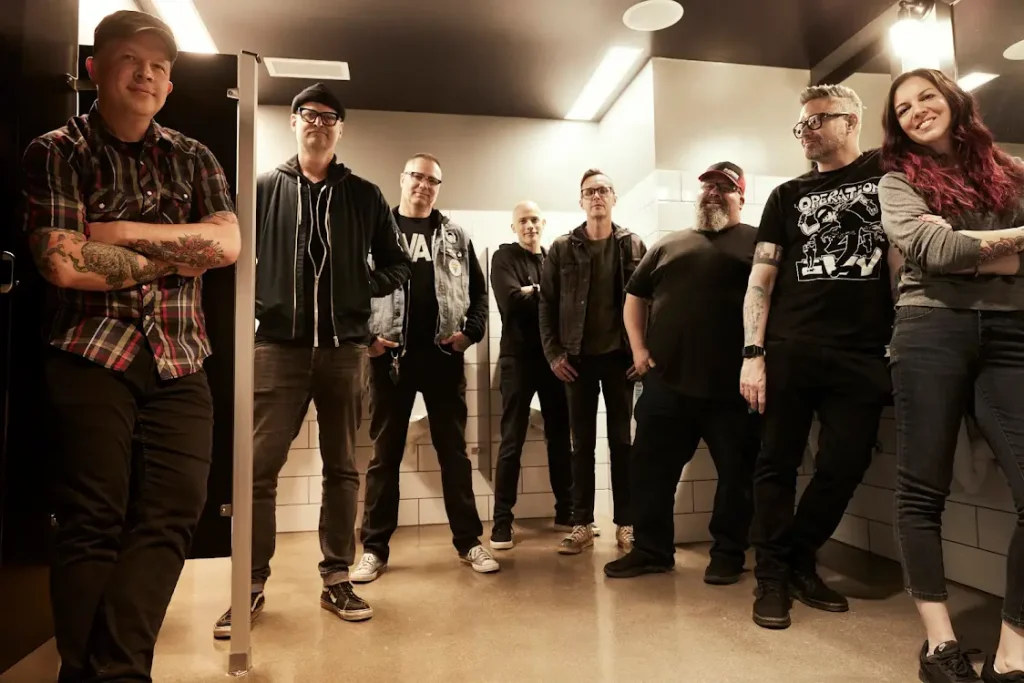
“Now we’re adults, we’re voters and we’re parents … we have to be even more of a strong voice for what we feel is important,” she says. “Not everybody is Christian anymore in our band, but we’re still able to write about hope and love and redemption. Mostly it is political, the things that are happening right now: If the meek inherit the Earth, we’re really doing a bad job of helping them feel like they matter.”
Looking back on Five Iron Frenzy’s legacy as the world’s foremost Christian ska band, a cluster of words that might send a collective shudder down the spines of tastemaker music critics, Ortega Till hopes they’ve done more than make a joyful noise for the Lord. She hopes they’ve won hearts and minds to the cause of equity, love and justice for all.
“Five Iron helped homeschool kids and evangelical kids who might have been very sheltered and weren’t able to hear other messages, or heard conflicting messages from the [Christian music] world,” she says. “I hope that legacy has been pleasing to God and helpful for society.”
‘Ska is for everybody’
When Tara Kish thinks back on her first brush with ska, she hears the bright burst of brass opening Five Iron Frenzy’s 1997 debut, Upbeats & Beatdowns. Sharing the headphones of her green anti-skip Discman with a friend beneath a junior-high school desk, she says her first taste of music outside Top 40 radio “hit the geek in me.”
Unlike the cowards who distanced themselves from the songs that once spoke to them so clearly, Kish never wavered in her devotion to the genre. She wrote her college admissions essay about none other than hometown hero Ortega Till, an idol she would later befriend as co-founder of a local collective known as Mile High Ska — a legion of like-minded misfits who turn out in droves for local shows. But if you ask the 36-year-old what makes the scene so special, the music itself isn’t the first thing that comes to mind.
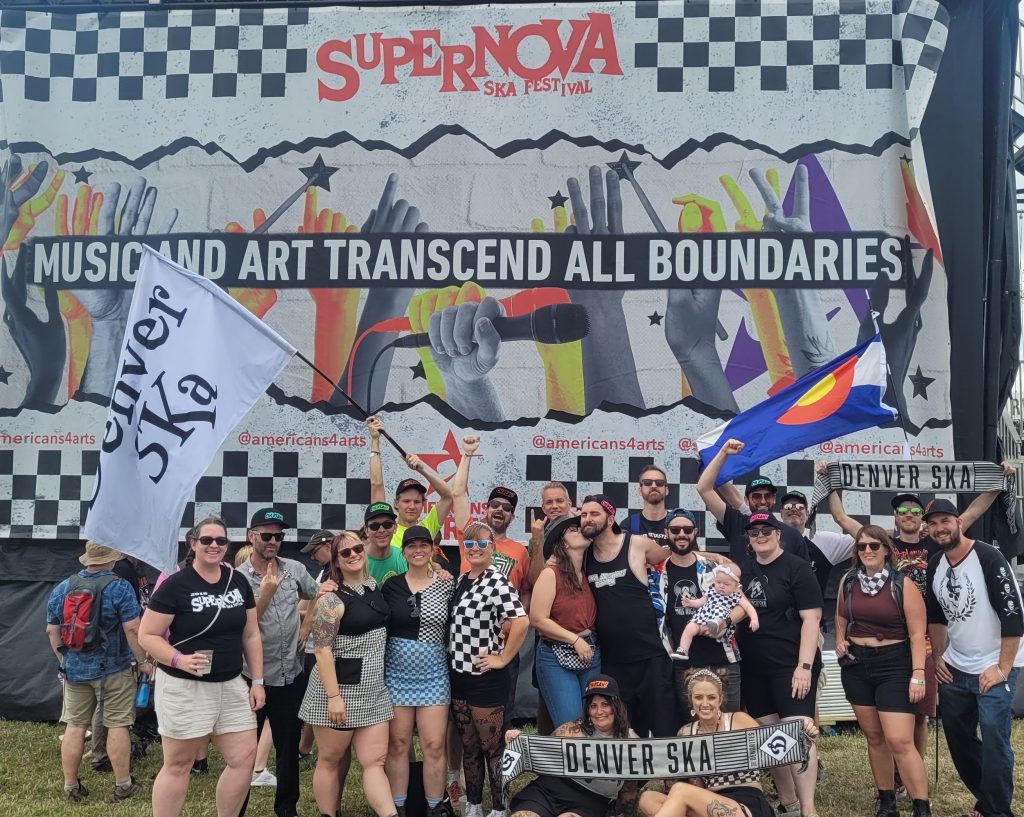
“When you’re an adult, no one teaches you how to make friends. This was my way of creating a community I wanted to belong to,” says Kish, who describes her childhood as a lonely one besieged by bullies. “My big thing is: Build something you want to be a part of. And I wanted to be part of the music scene. I wanted to be part of something bigger than the status quo.
“As people were showing up, [Mile High Ska] started to really become a thing,” she continues. “It was more than just going to shows — we had cookouts; we had camping trips. We had friendship, and that’s what a community really is. It showed me I don’t have to do things by myself. It’s not just about supporting the scene, but also supporting each other.”
That support manifests in the gender solidarity of Rude Girl Revue, an all-women ska ensemble formed by Kish in 2021. It rang out in high fidelity when the Mile High Ska crew showed up in huge numbers to cheer on local favorites The Dendrites (“Denver’s original ska party”) at the Supernova International Ska Festival in Virginia. And if you’re looking to put a figure on it, consider Five Iron Frenzy’s record-breaking Kickstarter campaign that raised more than $200,000 for the band’s reunion following an eight-year hiatus in 2011 — the most funded music campaign in the history of the platform at the time.
You’ll likely feel it too when Five Iron Frenzy takes the stage at Denver Ska Fest in a co-headlining slot alongside fellow ’90s scene setters Goldfinger and Less Than Jake. That’s where you’ll find Kish and her Mile High Ska cohort skanking to their hearts’ content, kicking up dust in the community they built for themselves in their own weird little corner of the Front Range. Coolness be damned.
“Ska is about creating a space where people can be genuinely themselves no matter where they came from, what age they are, who they love — it doesn’t matter,” she says. “Ska is for everybody.”
ON THE BILL: Denver Ska Fest feat. Goldfinger, Less Than Jake, Five Iron Frenzy and more. 2 p.m. to midnight, Saturday, June 15, Sculpture Park at Denver Performing Arts Complex, 1400 Curtis St., Denver. $70
Skanks for the memories
Four bands to put on your Denver Ska Fest dance card
Now that you know a little about the history and community surrounding one of the 20th century’s most defamed musical movements, you’ll need a quick primer before lacing up your skankin’ boots at Denver Ska Fest. Boulder Weekly asked ska historian and journalist Aaron Carnes for his take on some of the can’t-miss acts coming to the inaugural event this weekend.
The following has been edited for brevity and clarity.
* * * *
Kill Lincoln
“Kill Lincoln is pretty active in the newer ska scene. It’s the band of Bad Time Records owner Mike Sosinski. They’re really good — very hardcore-oriented ska. But it sounds different to me than what was happening in the ’90s when you talk about ‘skacore.’ You can hear how the aggressive side of ska has evolved over the years.
They put on a really energetic, wild show. You’ll see their trombone player in the audience being held up by the crowd while playing. If there’s a place to climb and jump, he’s going to do it.”
* * * *
Joystick
“They’re another really heavy band, but still ska. There’s a lot of heavy ska now. In the ’90s, there was a lot of ska-punk this and that, but most of it wasn’t that heavy if you think about it. A lot of it was pop-punk, but there wasn’t much actual hardcore mixed with ska back then. There were a few bands doing that, but it’s much more of a thing today.”
* * * *
The Planet Smashers
“The Planet Smashers are from Canada, and they’ve had a hard time playing the U.S. for a while due to visa issues. They’re playing Supernova [International Ska Festival in Virginia] this year, and it was a bit of a big deal because they’ve been scheduled to play before but had to cancel because they couldn’t get in the country.
They used to tour all the time, and they got really big — particularly in Montreal, where they’re from. They’re pretty well known in the U.S. because of all the touring they did back in the day. But like I said, it’s been a while since they’ve been able to get into the country. So that’s a good get.”
* * * *
Five Iron Frenzy
“Even though they’re not the headliner, I’m gonna guess Five Iron Frenzy will likely have the biggest response because they’re a Denver band. They’re well-loved in Colorado, and they have a pretty voracious fan base on top of that. They’re probably going to steal the show.
I wasn’t into them in the ’90s when they were more of an active Christian ska band. But when they came back in 2013, they were a bit of a different band in my opinion — a really good band — even though it’s basically the same people. I think their last record from 2021 [Until This Shakes Apart] is by far the best record they’ve ever done.
It’s a hard sell: ‘We’re Christians, but we hate what’s happened to Christianity. We hate what’s happened to politics in this country and how Christianity has been used.’ They’re very passionate about that. You’re not seeing a lot of people who identify that way, speaking out with as much emotion as they have.” - Aaron Carnes
